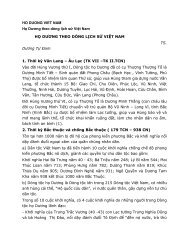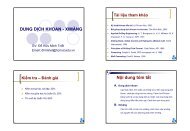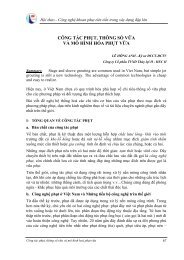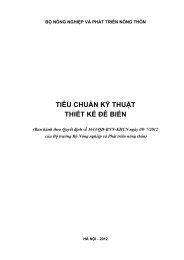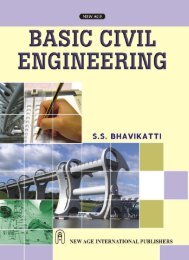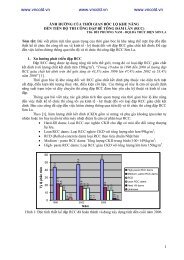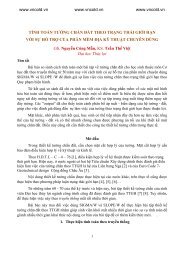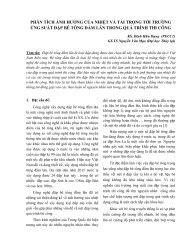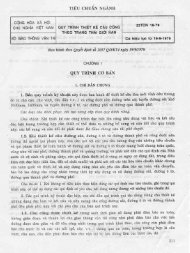Civil Engineering Project Management (4th Edition)
Create successful ePaper yourself
Turn your PDF publications into a flip-book with our unique Google optimized e-Paper software.
72 <strong>Civil</strong> <strong>Engineering</strong> <strong>Project</strong> <strong>Management</strong><br />
Qualifications attached to tenders<br />
Some tenderers may attach qualifications to their tender, usually set out in<br />
their covering letter. Qualifications which simply refer to some minor interpretation<br />
of a statement in the documents can usually be left for later agreement.<br />
But some qualifications may deal with a matter of considerable importance<br />
that changes part, or all, of the basis of contract as set out in the contract documents.<br />
Some employers have rules which require qualified offers of this kind<br />
to be rejected out of hand: if so, this should be made clear in the Instructions<br />
to Tenderers.<br />
An offer which is qualified in some important respect may give a tenderer<br />
an unfair advantage over other tenderers. For instance, a qualification that tendered<br />
prices are subject to increase if rates of wages ruling at the time of tendering<br />
increase, would invalidate a tender if the contract documents contain<br />
no such provision. On the other hand, a tenderer may submit a more subtle<br />
qualification, such as ‘Our prices are dependent upon being able to complete<br />
the contract within X months’, where the months X are less than the period for<br />
completion stated in the contract documents. The problems this can lead to are<br />
discussed in Section 6.9.<br />
A contractor can, of course, always submit an offer in accordance with the<br />
contract documents and add a second offer which proposes some reduction<br />
on the former offer if some qualifying condition is accepted.<br />
Whether a qualified offer can be accepted or not depends upon the powers<br />
and restraints under which the employer operates. A private person or company,<br />
subject to no restraint, can accept any tender. But a public authority or<br />
utility will be bound by standing rules and perhaps EC or other rules also;<br />
while a project funded by one of the international funding agencies may come<br />
under rules that preclude any qualification being accepted which could be<br />
inferred as granting a favour to one tenderer and not to others.<br />
In some cases specific alternatives are allowed in the contract documents.<br />
These most often refer to methods of constructing major temporary works, such<br />
as cofferdams for bridge foundations; river diversion works for construction<br />
of a dam, etc. The contractor may be required to quote a price for following a<br />
design shown in the contract drawings, but be permitted to offer an alternative<br />
design of his own. The option has to be made fully clear in the contract documents,<br />
and full details of the tenderer’s alternative design have to be provided.<br />
Checking tenders<br />
Detailed consideration of tenders will usually start with an arithmetic check of<br />
the lowest three or four offers which are free of unacceptable qualifications. Any<br />
arithmetic errors found should be dealt with in a manner which is set out in<br />
the Instructions to Tenderers. Usually the unit rates quoted for items are taken<br />
as correct, and all consequent multiplications and additions are arithmetically




